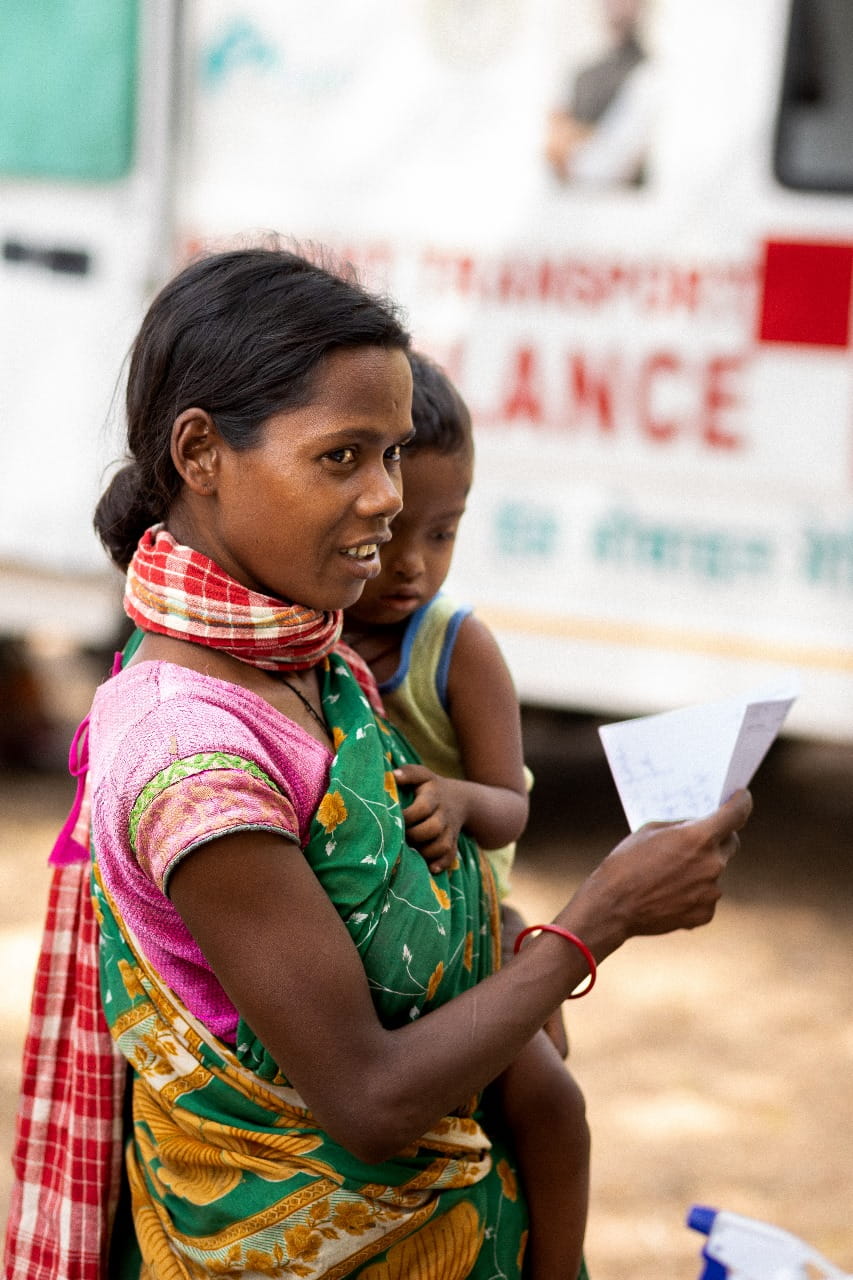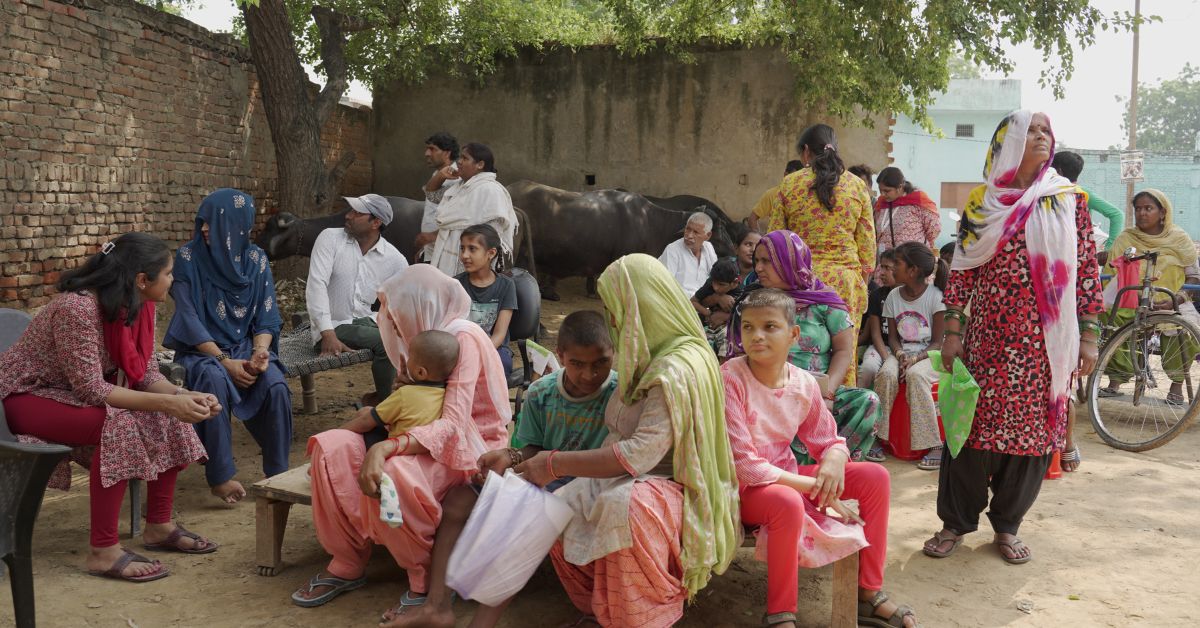This article is sponsored by The Hans Foundation
Childhood cancers are a rising problem globally. The WHO states that over four lakh children develop cancer each year, with India accounting for 50,000 of these cases. While survival rates are high in high-income countries, India still faces the problems of lack of diagnosis, delayed diagnosis, access to care, and continuation of treatment. An ICMR (Indian Council of Medical Research) paper states that there is a need for specific policy work to bring childhood cancer under control in India.
Similarly, an ICMR-NCDIR (National Centre for Disease Informatics and Research) study found that a dedicated paediatric oncology department was available in 41.6% of government hospitals.
Take, for instance, 10-year-old Saksham (name changed). Residing in Timbi village of Himachal Pradesh, the playful child started experiencing unexplained fatigue, frequent infections, and fever in 2022. His father, Ramesh (name changed), a farmer, consulted local doctors (for which he had to travel 20 km), but none of the medications they gave worked on the child.
Saksham was then taken almost 90 km away, to ‘The Himalayan Hospital’ in Dehradun, where blood tests revealed that he had Acute Lymphoblastic Leukaemia (ALL), a type of blood cancer. Father to six children, with barely any income, Ramesh had already spent about Rs 50,000 for his travels and different treatments. The treatment for ALL, doctors estimated, would be about Rs 8 lakhs.
“I had lost all hope. My income was just enough to feed my family. I didn’t know what to do and how to save my child,” says Ramesh.
The doctor then informed Ramesh about The Hans Foundation’s Hans Bal Aarogya Karyakram, which supports cancer treatment and bone marrow transplants. Working with the hospital and the family, the programme has covered the cost of chemotherapy, bone marrow transplant, blood transfusions and other medical expenses for Saksham, who is now on the road to recovery.
The Hans Bal Aarogya Karyakram, run in collaboration with the Uttarakhand government, is bridging the gap of financial access for children who can’t afford treatment for critical diseases like cancer. So far, over 2,500 children have benefited from this initiative and have received life-saving treatments.
Helping parents access quality cancer care

Established in 2017 in close partnership with the state government, the programme provides free treatment to children aged 0-18 years who are suffering from critical diseases or conditions, complementing the Rashtriya Bal Swasthya Karyakram (RBSK) and subsequently, Ayushman Bharat schemes by supporting treatment for conditions outside the schemes’ purview,
The District Early Intervention Centers (DEICs), established under the RBSK, identify infants and children with developmental delays, disabilities and diseases. Once identified, these children are referred to two empanelled medical colleges, namely The Himalayan Hospital (Swami Ram Himalayan University) and Shri Mahant Indresh Hospital. The Hans Foundation has partnered with these two colleges and reimburses the treatment expenses for diseases like cancer.
While the programme is broadly designed, 90 percent of the patients who need support are cancer patients, as cancer treatments require a lot of time and money. The average cost of treating common cancers in children like ALL and Acute Myeloid Leukaemia (AML) can easily range from Rs 5-15 lakhs or even more, depending on the complexity of the disease at the time of diagnosis. Most of the children who come in for treatment are either infants, or between the age group of 5-8.
Common cancers in children are different from those seen in adults. Dr BP Kalra, Professor of Pediatrics, Department of Pediatrics, Himalayan Institute of Medical Sciences, Dehradun states that leukaemias (cancer of blood-forming tissues), lymphomas (cancer of the lymphatic system) are the most common, followed by brain and bone cancer and tumours like the Wilms Tumour (renal cancer).
“We see that most commonly, children get cancer in the first or second year of life, or in the 5-10 age group. In the school-going age group, leukaemias and lymphomas are most common. The outcome is generally good in this age group,” says Dr Kalra.
The Himalayan Institute caters to children from across Uttarakhand, Uttar Pradesh, and sometimes Punjab, Haryana, Himachal Pradesh and more. The reason, the doctor adds, is because of lack of facilities for treatment, which makes parents and children travel far and wide for basic access.
What is needed for good outcomes, according to Dr Kalra, is an early, prompt, correct diagnosis which should be followed by effective, evidence-based therapy after which supportive care is paramount.
Helping 2,500 children get cancer treatment

Childhood cancer management in Low and Middle-Income Countries (LMICs), including India, is characterised by delayed diagnosis and treatment initiation, inadequate/incomplete treatment and low survival rate, according to a report in Indian Cancer Society.
For starters, parents must be aware of the common symptoms and go to a doctor when they notice these including: recurrent fevers, loss of appetite, loss of weight, swelling in parts of the body, persistent pain, sudden tiredness, fatigue, headaches, any lumps or mass.
After the first step where families notice symptoms and access care, the second step is clinical evaluation and diagnosis. Facilities like the DEIC should be able to help in this step. The last and most crucial step is accessibility to treatment. As the majority of public hospitals don’t have paediatric oncology care, parents either have to take them far to a government hospital that has the treatment, or go to a private hospital nearby.
The role of trusts like The Hans Foundation is very important in such cases, as they help families afford quality healthcare and save the lives of their children through timely treatment.
Dr Kalra says that his biggest request to parents is to continue treatment.
“Parents must remain hopeful and continue treatment. The results are good and most children do well, after early diagnosis. We are thankful to The Hans Foundation which makes it possible for so many children to access treatment,” adds Dr Kalra.
The Hans Bal Arogya Karyakram, which has been working on ground since 2017, has helped over 2,518 children. A medical audit found that the survival rates of children had improved by more than 80% post-intervention.
Based on the success of and the learnings from the programme in Uttarakhand, The Hans Foundation is now ready to expand its support to children suffering from cancer under its Hans Paediatric Care programme and extending services to RN Tagore Hospital in Kolkata, G Kuppuswamy Naidu Memorial Hospital in Coimbatore, Narayana Multispeciality Hospital in Howrah and SGVP Hospital in Ahmedabad.
Their goal is to make access to cancer treatment possible for children across the country, irrespective of their location.
“There is a way out. The disease can happen to anyone. Don’t lose hope and have patience and faith in your doctor. Try the treatment and complete it,” says Dr Kalra.
(Edited by Padmashree Pande; All pictures courtesy: The Hans Foundation)
No comments:
Post a Comment